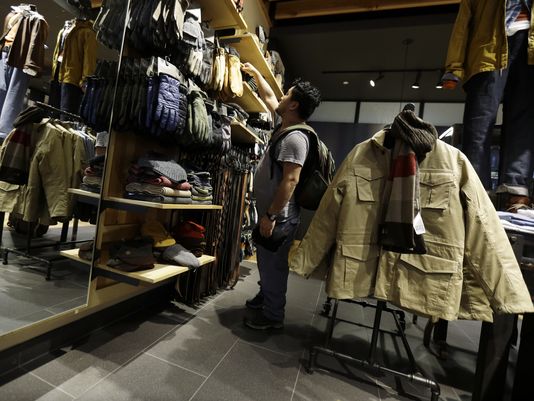Consumer Confidence Plunges On Shutdown
WASHINGTON (AP) — Americans’ confidence in the economy fell this month to the lowest level since April, as many worried about the impact of a 16-day partial government shutdown. The decline could weigh on spending and economic growth.
The Conference Board said Tuesday that its index of consumer confidence dropped to 71.2 in October, down from 80.2 the previous month. September’s figure was revised slightly higher.
Consumers became particularly pessimistic in their outlook on the economy six months from now, while their assessment of current economic conditions declined by much less. They also expect less hiring in the months ahead. Consumers’ confidence is closely watched because their spending accounts for 70% of economic activity.
Americans became more confident in the spring as job gains were healthy and economic growth improved. The Conference Board’s measure reached 82.1 in June, the highest in 5 ½ years. That’s still below the reading of 90 that is consistent with a healthy economy.
Confidence has dropped in three of the four months since June. The shutdown already caused a drop this month in the University of Michigan’s measure of consumer sentiment. Americans made more negative references to the federal government’s impact on the economy in October than at any time in the 50-year history of the survey, the university said.
Falling confidence can cause Americans to spend less, which would slow the economic growth. But sometimes consumers spend more, even when they say they are less confident.
Weaker job growth is also weighing on consumers’ outlook. Employers added an average of just 143,000 jobs a month from July through September. That’s down from 182,000 a month in April through June and 207,000 in the first three months of the year.
Sluggish spending is likely to weigh on economic growth. Most economists predict growth slowed in the July-September quarter to an annual rate of about 1.5% to 2%, down from a 2.5% rate in the April-June quarter. And the shutdown is likely to keep growth at a tepid pace for the final three months of the year.
Consumers became particularly pessimistic in their outlook on the economy six months from now, while their assessment of current economic conditions declined by much less. They also expect less hiring in the months ahead. Consumers’ confidence is closely watched because their spending accounts for 70% of economic activity.
Americans became more confident in the spring as job gains were healthy and economic growth improved. The Conference Board’s measure reached 82.1 in June, the highest in 5 ½ years. That’s still below the reading of 90 that is consistent with a healthy economy.
Confidence has dropped in three of the four months since June. The shutdown already caused a drop this month in the University of Michigan’s measure of consumer sentiment. Americans made more negative references to the federal government’s impact on the economy in October than at any time in the 50-year history of the survey, the university said.
Falling confidence can cause Americans to spend less, which would slow the economic growth. But sometimes consumers spend more, even when they say they are less confident.
Weaker job growth is also weighing on consumers’ outlook. Employers added an average of just 143,000 jobs a month from July through September. That’s down from 182,000 a month in April through June and 207,000 in the first three months of the year.
Sluggish spending is likely to weigh on economic growth. Most economists predict growth slowed in the July-September quarter to an annual rate of about 1.5% to 2%, down from a 2.5% rate in the April-June quarter. And the shutdown is likely to keep growth at a tepid pace for the final three months of the year.
SOURCE: USA Today



Leave a Reply
Want to join the discussion?Feel free to contribute!